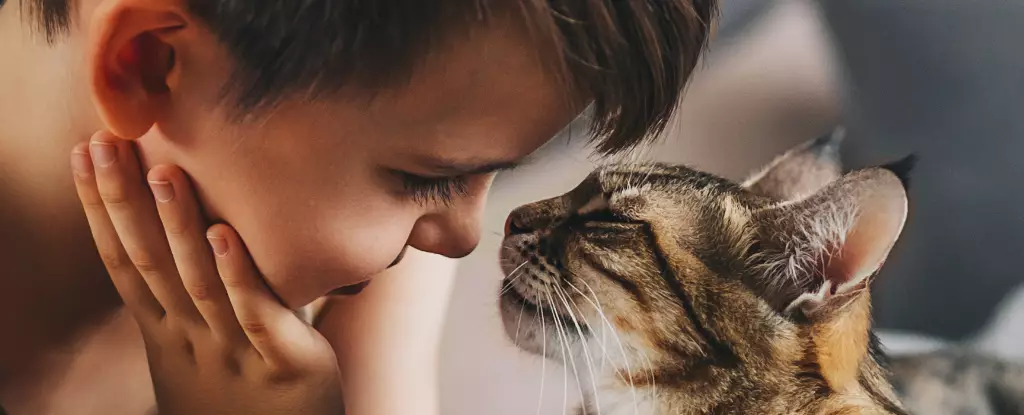Cats have walked alongside humans for millennia, stealthily weaving their way into our homes and hearts long before the digital age gave us cat memes and viral videos. Known for their calming purrs and unpredictable antics, these enigmatic creatures offer more than mere entertainment; they influence our wellbeing in intriguing ways. In this article, we delve into the myriad ways pets can impact human health, dissecting both the positive and negative implications of sharing our lives with cats.
Many pet owners consider their cats to be integral members of their families, blurring the lines between pet and companion. A significant body of research supports this sentiment. In one Dutch study involving 1,800 cat owners, an impressive number of respondents classified their felines as family members, with a subset even describing them as akin to children or best friends. This deep-rooted bond isn’t just sentimental; the emotional ties we develop with our cats can have far-reaching consequences for our mental and physical health.
Cats, in their own unique way, appear to thrive on human interaction. Studies suggest they often prioritize time spent with their human companions over food or toys—a strong indicator of their social nature. Furthermore, felines have evolved to communicate with us effectively, adjusting their vocalizations to elicit nurturing responses. For instance, cats often use specific meows that evoke our protective instincts, highlighting the intricate evolution of our shared living experience.
The psychological benefits of cat ownership abound, particularly concerning feelings of loneliness and purpose. Many cat owners report a sense of fulfillment derived from caring for their pets, which can translate to a more vibrant emotional state. Research has demonstrated a notable correlation between cat ownership and decreased risks of social isolation, thereby enhancing people’s overall quality of life.
Different emotional dynamics influence these experiences. For instance, those categorizing their relationships with cats as ‘co-dependent’ or ‘friend-like’ showcase heightened emotional connections. Such dynamics frequently lead to increased psychological benefits, including reduced anxiety and greater life satisfaction. This phenomenon is particularly observable among individuals grappling with depression, as interacting with pets can temporarily lift their spirits. Indeed, studies have confirmed that engaging with cats can yield immediate emotional relief, although this effect has yet to be studied over a more extended period.
However, the relationship we share with our cats may not always yield positive implications. Qualitative studies have unveiled a darker side to pet attachment. For certain demographics, such as veterans experiencing mental health challenges, the emotional burden can be a double-edged sword. While pets provide necessary comfort during tough times, increased dependence on them often correlates with deeper psychological struggles. In some cases, the obligation to care for an ill animal can exacerbate feelings of stress, particularly amongst those charged with caregiving duties for pets that suffer from chronic conditions.
Moreover, while the emotional rewards of cat companionship are well-documented, the responsibility that comes with pet ownership can also elicit anxiety and distress when things go awry. Those who care for pets with severe health issues often face a caregiver’s burden that can materially affect their quality of life. Instances of caregiver overload can cause significant mental strain, and contemplating the task of caring for a sick pet can be daunting.
Despite the many emotional and psychological benefits tied to feline companionship, it is crucial to remain cognizant of potential health risks. Cats can harbor zoonotic diseases, such as toxoplasmosis, which can have serious implications for pregnant women and individuals with compromised immune systems. Though most healthy individuals experience mild flu-like symptoms, the risks associated with these infections are significant enough to necessitate caution, particularly within vulnerable populations.
Furthermore, cats can trigger allergic reactions in some individuals. With an increasing number of people raised alongside cats presenting allergic responses, exposure to allergens such as dander and saliva is a notable issue. However, it is also worth mentioning that contact with cats may provide a counterintuitive protective effect, as early exposure to these allergens might reduce the likelihood of developing asthma or related allergic reactions.
The companionship of cats presents a compelling mix of benefits and challenges. While they can offer emotional support and a sense of purpose, prospective cat owners must weigh the responsibilities and health risks associated with feline care. Understanding the complexities of these relationships equips us to appreciate the subtle, indispensable role that our furry friends play in our lives, while also reminding us to approach pet ownership with mindfulness and responsibility.

